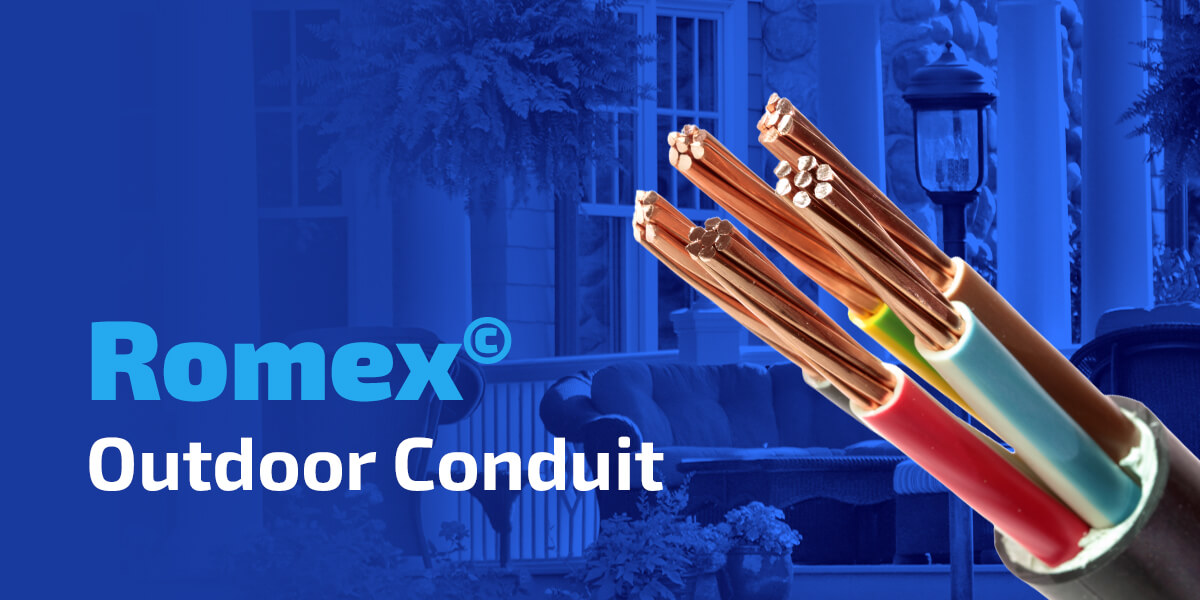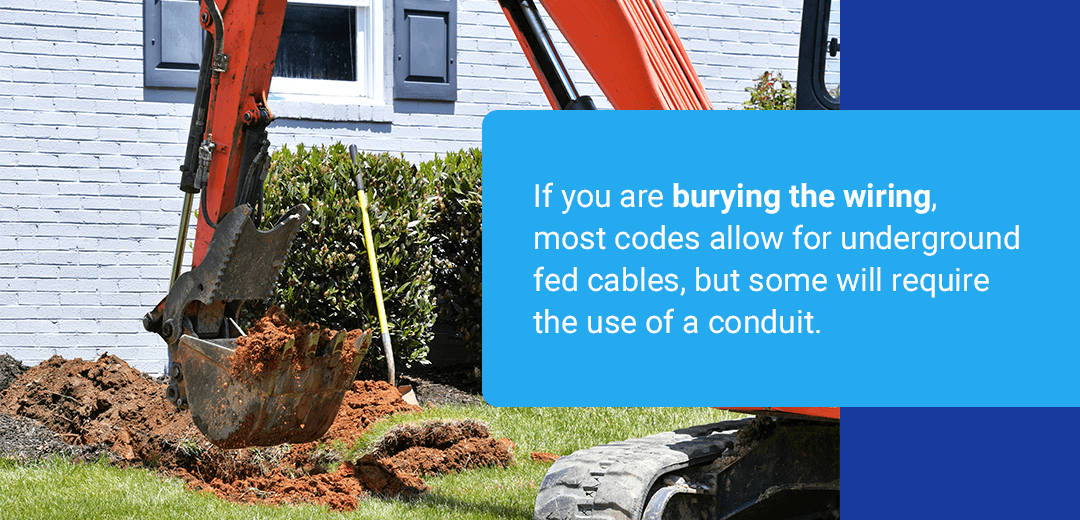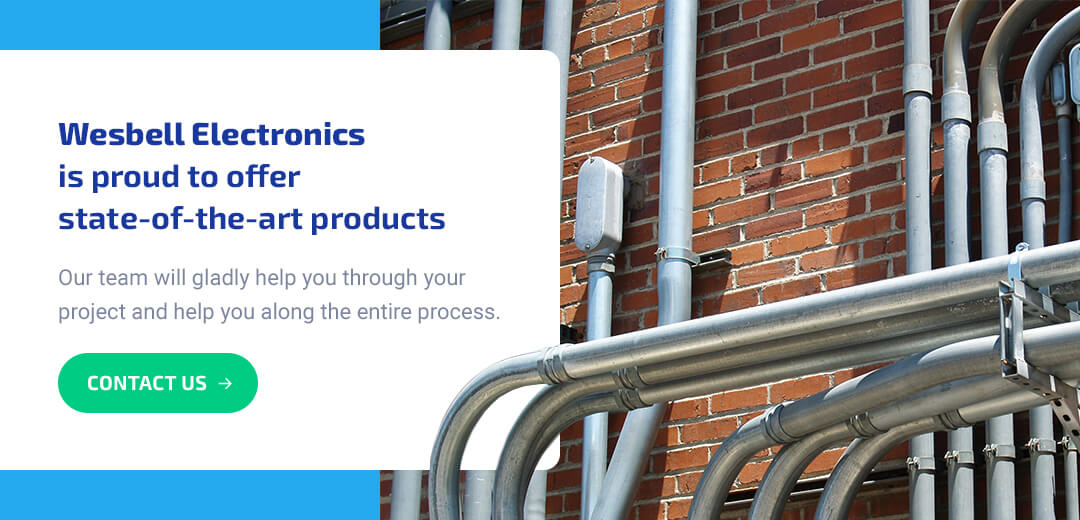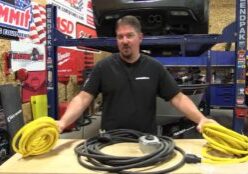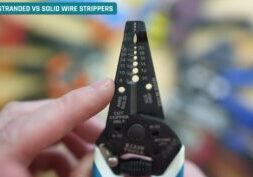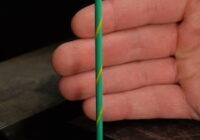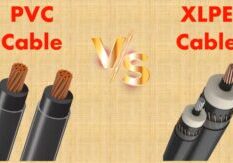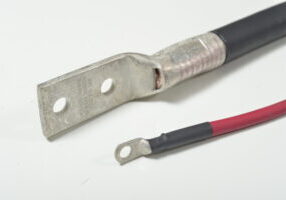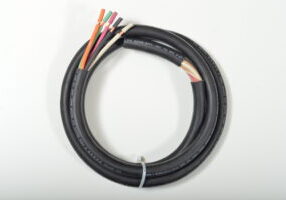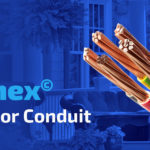
Dec 10, 2020
Why Romex Wiring Can’t be Used Outdoors
Why Can’t Romex Be Used Outdoors?
Romex is a type of electrical wire used in various applications. While Romex wiring is useful for many indoor applications, it is unsuitable for outdoor use. This article explores why Romex can’t be used outdoors, compares Romex vs THHN for outdoor use, and discusses safer alternatives for outdoor wiring projects. While THHN and THWN wires can be used outdoors, they cannot be put directly underground.
Romex features a bare copper ground wire inside the cable not fully protected by the polyvinyl chloride (PVC) jacket covering the conductors. One key reason why Romex can’t be used outdoors is that if it gets wet with water, gas, oil, or another solvent, these liquids could penetrate the jacket and ruin the connection by touching the bare copper ground wire. Understanding this limitation is crucial for ensuring wiring safety in outdoor environments.
What Kind of Wire Do You Use for Outdoor Conduit?
The National Electrical Code (NEC) has specific requirements and standards for installing outdoor equipment and circuits. When placing wiring in an outdoor application, one of the most important safety concerns is preventing wire damage, protecting from corrosion ad moisture and managing any potential complications related to undergoing wiring.
With many outdoor wiring projects, you must follow applicable code requirements about placing outdoor lighting fixtures and receptacles and running wiring below and above the ground. While Romex contains an outer vinyl jacket and premium waterproof insulation around the conduction wires, it is not recommended for outdoor applications. When you are using an outdoor cable and conduit, there are also many additional standards and regulations to consider.
A metal-clad (MC) cable assembles one or more insulated circuit conductors enclosed in a smooth or corrugated metal sheath or interlocking metal tape. An MC cable can be used in outdoor and indoor applications because the ground wire is insulated in THHN wire and THWN wire. One of the most common uses of MC cable is in indoor applications because it can be used without a conduit for easier installation. Even if the MC jacket does not fully protect the THHN and THWN wires, they already have the approvals to withstand outdoor elements. Copper and aluminum MC cable can also be used in conduits.
Does Exterior Wiring Need to Be in Conduit?
Local codes usually require exterior wiring to be placed in a conduit when it is installed above ground. This is especially true when comparing Romex vs. THHN for outdoor use. While THHN can be used outdoors when properly protected, Romex should always be avoided due to its lack of adequate protection against environmental factors.
If you are burying the wiring, most codes allow for underground fed cables, but some will require the use of a conduit. Buried or exposed wiring will need to be listed for its application. Underground feeder wiring can be directly buried without a conduit with a minimum of 24 inches of cover. Any wiring placed inside intermediate metal or rigid metal conduits will require at least six inches of ground cover.
On the other hand, wiring protected in a PVC conduit will require a minimum of 18 inches of cover. Wiring lower than 30 volts must be buried at a depth of at least six inches. If you are running wiring underneath outdoor decks, use a conduit, as conduits are required by code. You should also attempt to provide reasonable protection for the conduit and place it high enough that pests will not be likely to nibble the conduit.
Some of the most common outdoor conduits include:
- Rigid metal conduit (RMC): RMC is typically used for outdoor applications and is a heavy-duty galvanized steel tube installed with threaded fittings. It can protect panels, electrical cables, and more from damage while providing support. Generally, RMC is sold in 10—or 20-foot increments with threads on either end.
- Intermediate metal conduit (IMC): IMC is often used in new outdoor construction projects. IMC is lighter-weight and thinner than RMC and is ideal for use in the same projects as RMC conduit. Because IMC is often simpler to work with, it is more commonly used in new construction projects.
- Liquid-tight flexible metal conduit (LFMC): LFMC is a special kind of flexible metal conduit with a plastic coating often used for outdoor equipment. It can seal fittings for a watertight finish. Many people use LFMC when installing air conditioning units.
- Rigid polyvinyl chloride (rigid PVC): Rigid PVC is ideal for use in corrosive environments. Rigid PVC shares many qualities with plastic plumbing piping and is installed with plastic fittings secured with glue. Rigid PVC can be shaped after being heated. Because these conduit fittings and tubes are glued together, the conduit assemblies are watertight, making rigid PVC ideal for direct placement in the ground for various applications.
Does Exposed Romex Need to Be in Conduit?
When using any non-metallic wiring in an outdoor application, you should run the wiring through a conduit. This includes situations where you might consider using Romex. Given that exposed Romex needs additional protection to avoid contact with solvents and moisture, it’s clear why it isn’t recommended for outdoor use without proper conduit protection.
The copper ground wire inside is regularly exposed to various elements compared to conductors. When running the wiring underground, it will be exposed to weather, water, pressure, and roots. If you use Romex, especially stripped Romex, the need for a conduit becomes even more important. When Romex comes into contact with solvents, the bare copper ground wire can negatively impact the connection and trip the breaker repeatedly.
Contact WesBell Electronics for Outdoor Electrical Conduit
WesBell Electronics is proud to offer state-of-the-art products that meet all your indoor and outdoor wiring needs. Whether you’re looking for alternatives to Romex for safe outdoor use or need guidance on selecting the right electrical wire types for outdoor use, our expert team is here to help. Contact us today to learn more about our offerings and ensure your next project meets all safety standards.
We strive to provide our customers with high-quality products at competitive pricing to ensure you have the right cable by the installation it will be placed in. Our team will gladly help you through your project and help you along the entire process. In addition to various cables and wires for sale, we provide custom services for easy, professional implementation.
With top-of-the-line products and competitive pricing, our products allow our clients to complete their designs and projects effectively and efficiently. We are proud to offer the highest level of customer service to ensure designers are confident in the build and quality of our products. We are dedicated to doing whatever it takes to help our clients achieve their design goals.

